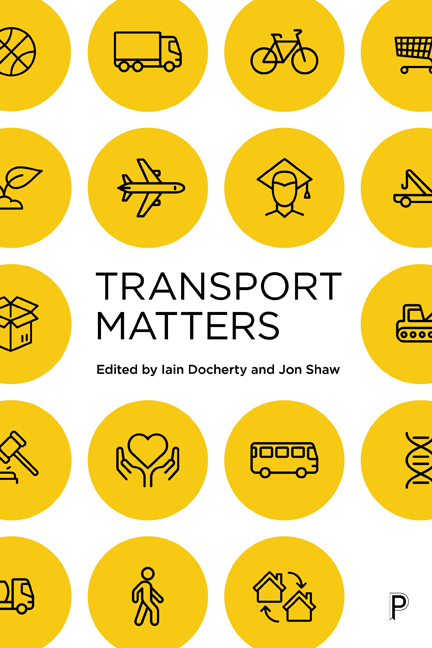10 - The Journey Experience
Published online by Cambridge University Press: 03 March 2021
Summary
Introduction
Travel can be fun, exciting, dull or boring. It can also be hard work; the word travel originates from travail meaning painfully difficult or laborious effort. However, as Latour (1997) argues, the physical effort of moving has been smoothed out by the transport system, and this impacts on the journey experience and brings about the possibility of other activities taking place while travelling. Given that globally billions of people spend a significant part of their life travelling for a multitude of reasons, the impact of journey experience on travellers’ ability to use their time for personal and work activities and influence their overall wellbeing should be of concern to travel providers and policy makers.
The experiences discussed in this chapter are rooted in the prosaic journeys of commuting, work-related travel, or accessing other personal activities, rather than specific leisure journeys (for example, a steam train trip). Specifically, we are concerned with how the journey experience is shaped through the interaction between travellers and their mode of transport, other objects and technologies they encounter on their journey, and other travellers. (And here we focus in particular on the ‘powered’ modes – see, for example, Middleton 2018 and Simpson 2017, 2018 on the journey experiences of walkers and cyclists.) Our approach emphasises the idea that travellers ‘craft’ their experience in response to the travel context (for example, bus passenger or car driver) and the ‘tools’ they have to hand (for example, books, phone, or laptop). The crafted journey experience is not just the concern of the ‘equipped’ individual traveller, however, particularly on public transport systems. It has a wider political and commercial concern in terms of transport planning, provision, management and investment, including infrastructure and vehicle design, engineering and innovation, as these all impact on the travel environment and thus travellers’ experiences and time use. For example, UK digital policy making at the time of writing is concerned with delivering 5G along key transport networks to offer continuous digital connectivity, while at the same time ministers are pushing Train Operating Companies (TOCs) to offer free Wi-Fi to rail passengers (Department for Culture, Media and Sport (DCMS) and HM Treasury 2017).
- Type
- Chapter
- Information
- Transport Matters , pp. 227 - 250Publisher: Bristol University PressPrint publication year: 2019



